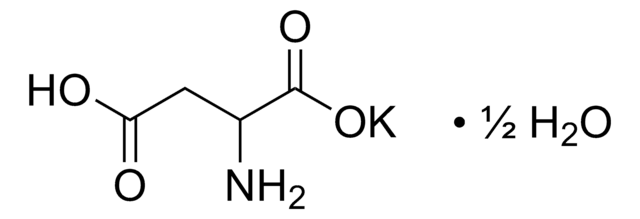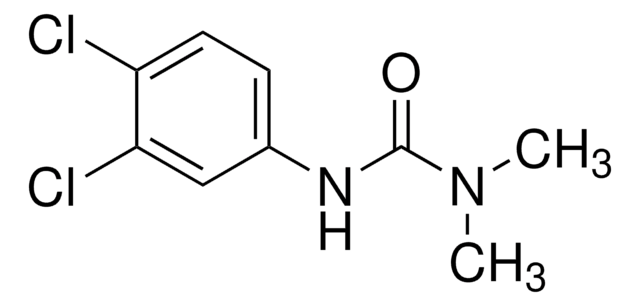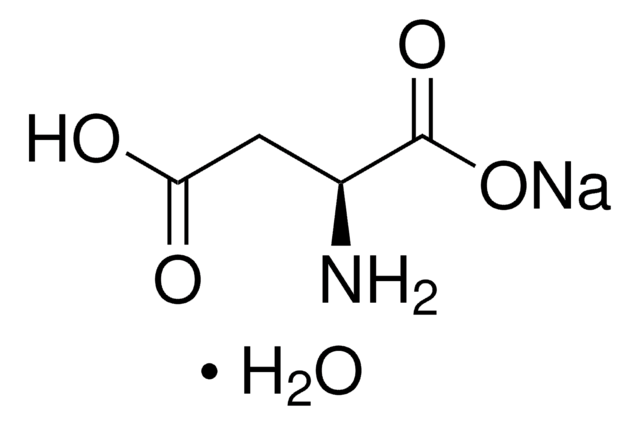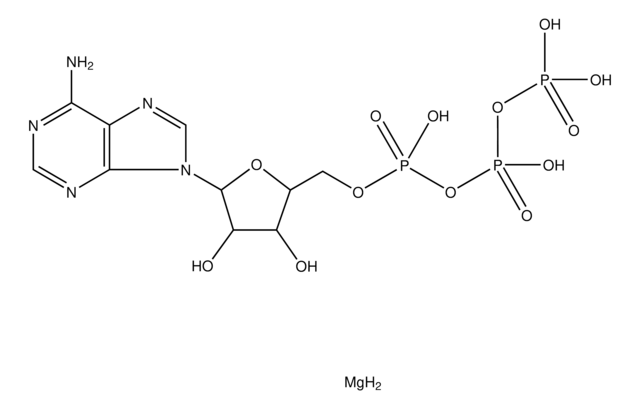A6558
L-Aspartic acid potassium salt
≥98% (HPLC), suitable for ligand binding assays
Synonym(s):
Potassium L-aspartate
About This Item
Recommended Products
product name
L-Aspartic acid potassium salt, ≥98% (HPLC)
Assay
≥98% (HPLC)
form
powder
technique(s)
ligand binding assay: suitable
color
white
SMILES string
N[C@H](C([O-])=O)CC(O)=O.[K+]
InChI
1S/C4H7NO4.K/c5-2(4(8)9)1-3(6)7;/h2H,1,5H2,(H,6,7)(H,8,9);/q;+1/p-1/t2-;/m0./s1
InChI key
TXXVQZSTAVIHFD-DKWTVANSSA-M
Looking for similar products? Visit Product Comparison Guide
Related Categories
General description
Application
- to prepare perforated patch-clamp intracellular solution
- in serum glutamate–oxaloacetate transaminase (SGOT) assay
- as a component in an internal solution (IS) for mitoflash assay to detect mitochondrial flashes in permeabilized cells
Biochem/physiol Actions
Storage Class Code
11 - Combustible Solids
WGK
WGK 3
Flash Point(F)
Not applicable
Flash Point(C)
Not applicable
Personal Protective Equipment
Certificates of Analysis (COA)
Search for Certificates of Analysis (COA) by entering the products Lot/Batch Number. Lot and Batch Numbers can be found on a product’s label following the words ‘Lot’ or ‘Batch’.
Already Own This Product?
Find documentation for the products that you have recently purchased in the Document Library.
Customers Also Viewed
Chromatograms
application for HPLCOur team of scientists has experience in all areas of research including Life Science, Material Science, Chemical Synthesis, Chromatography, Analytical and many others.
Contact Technical Service







